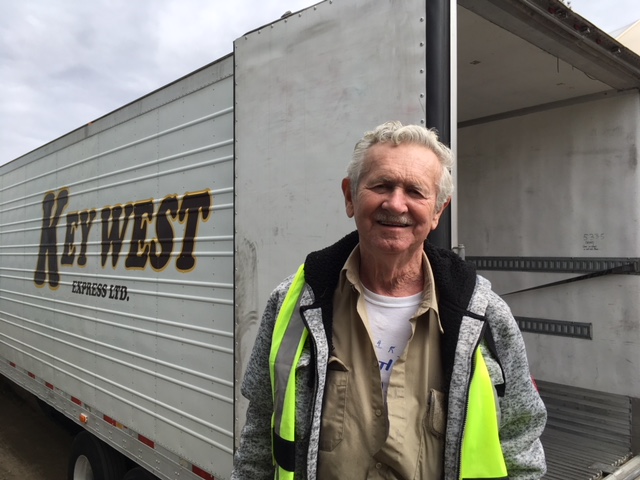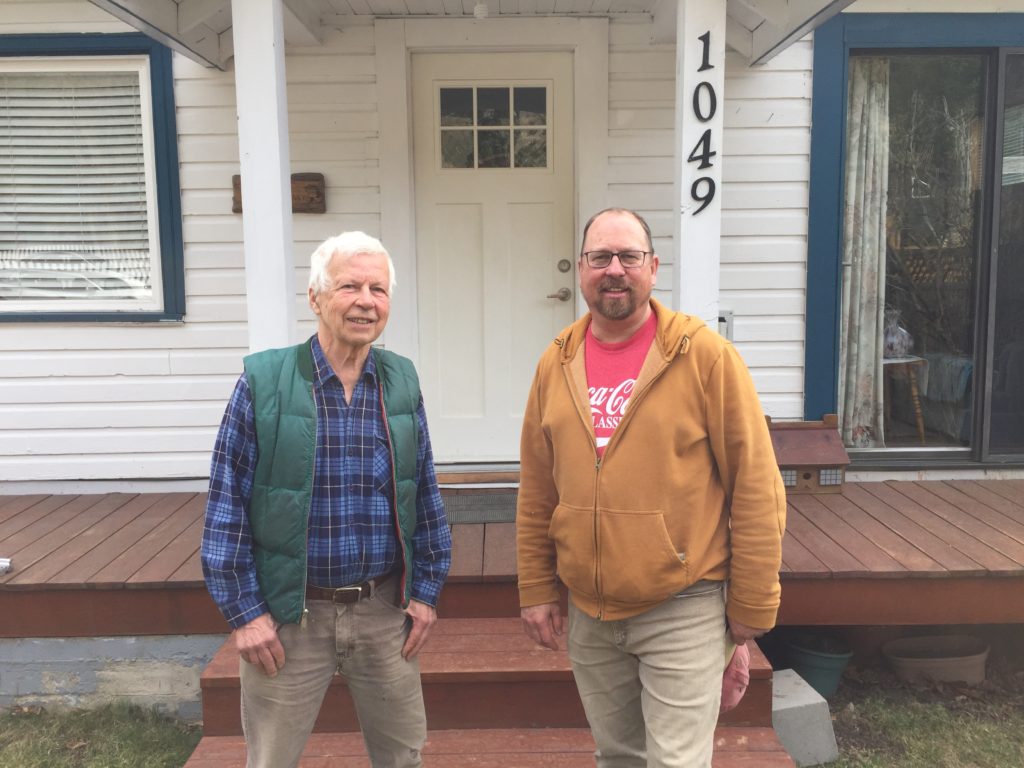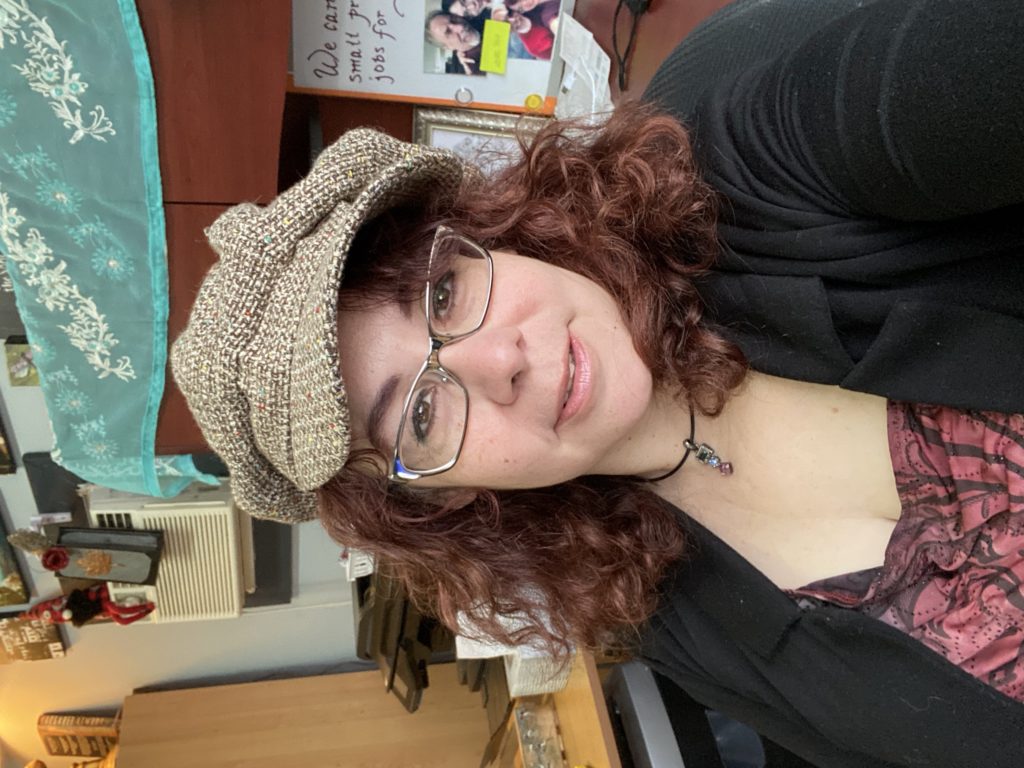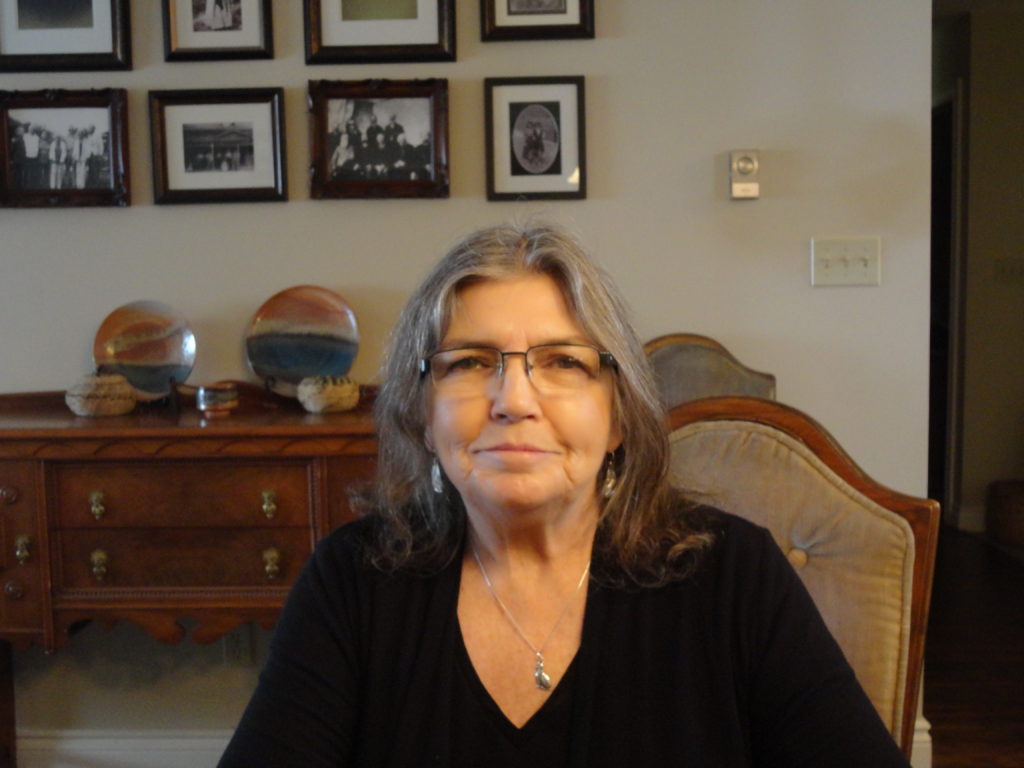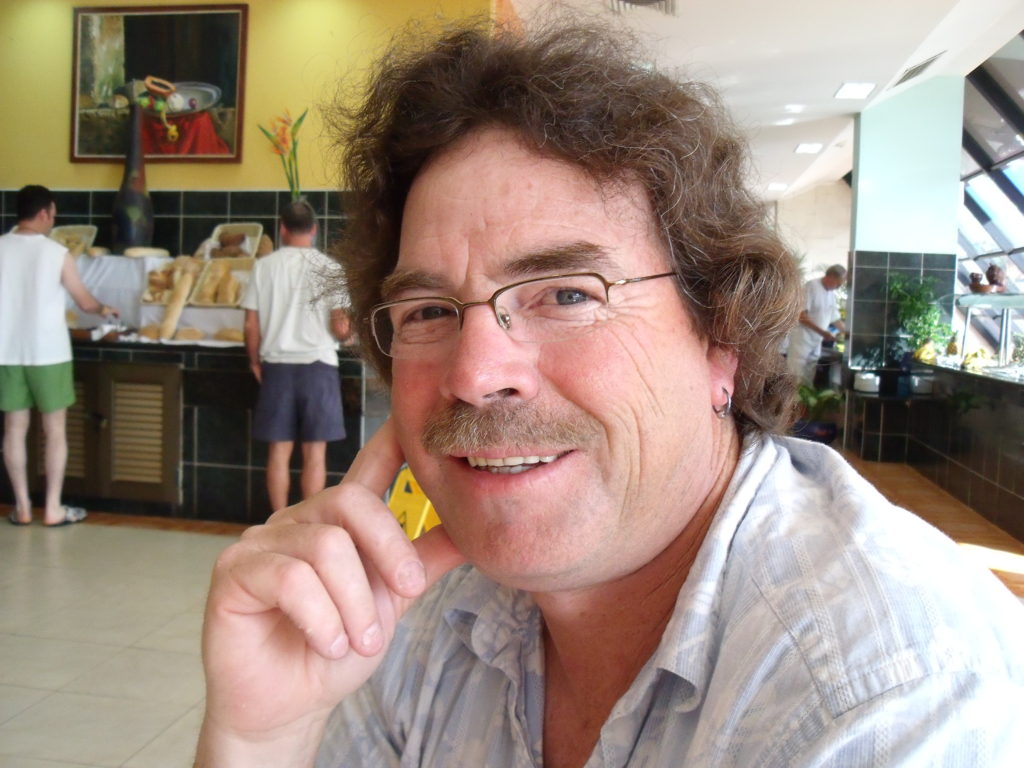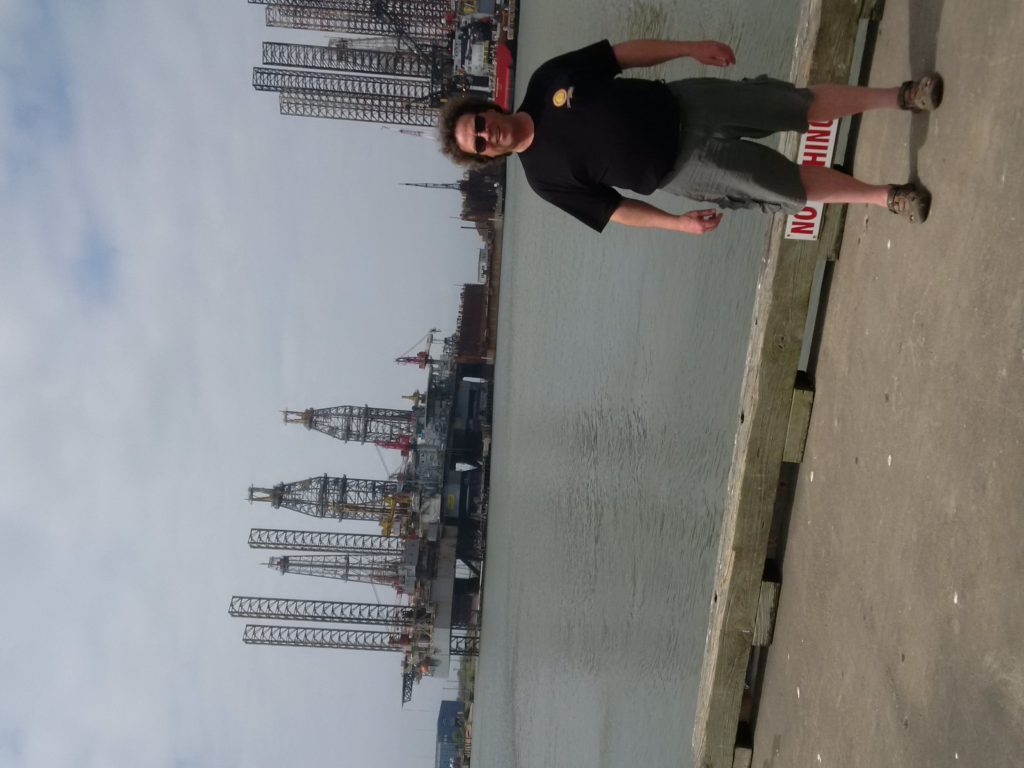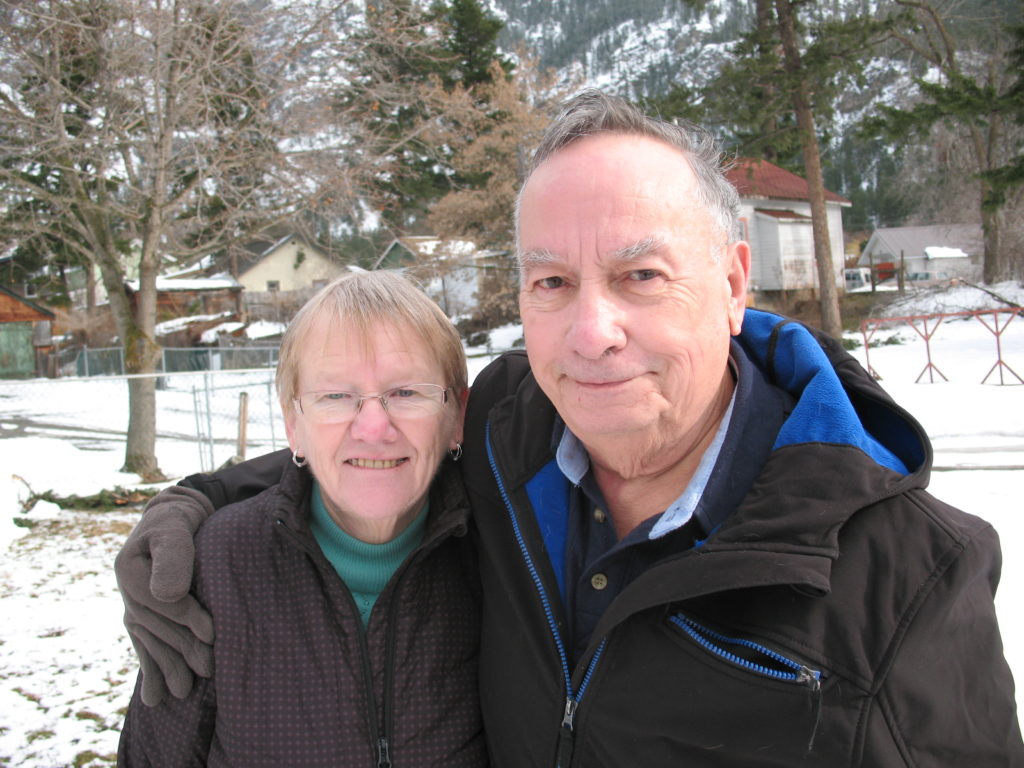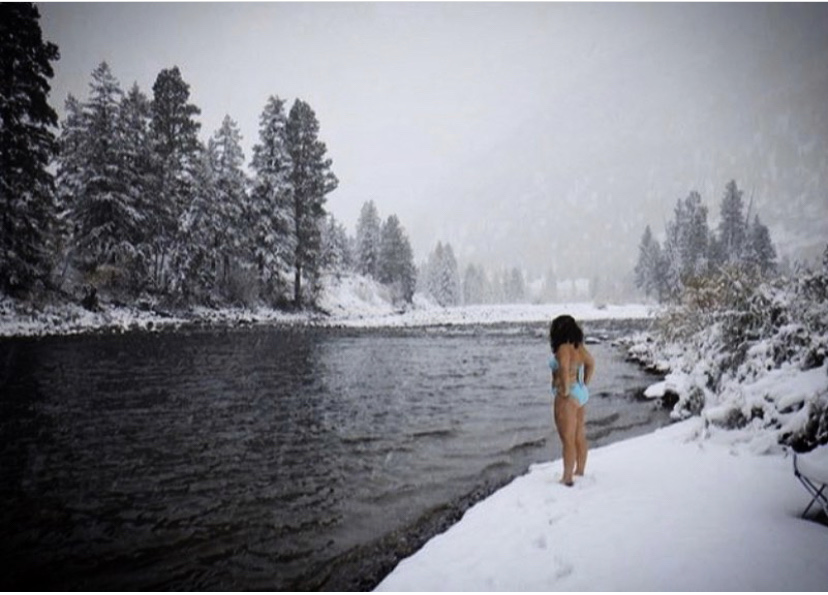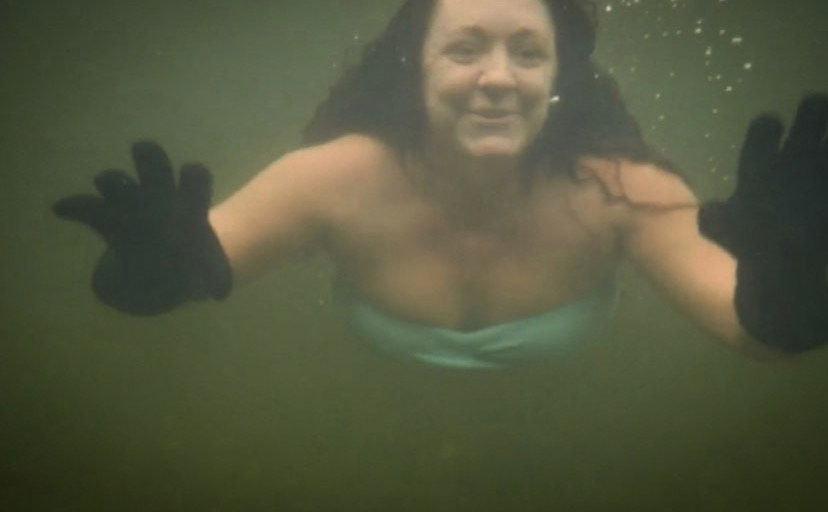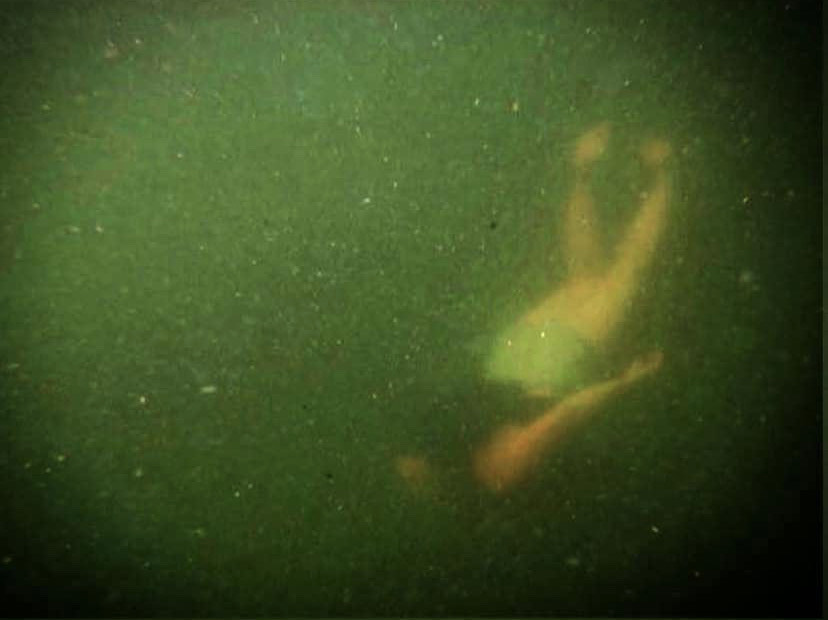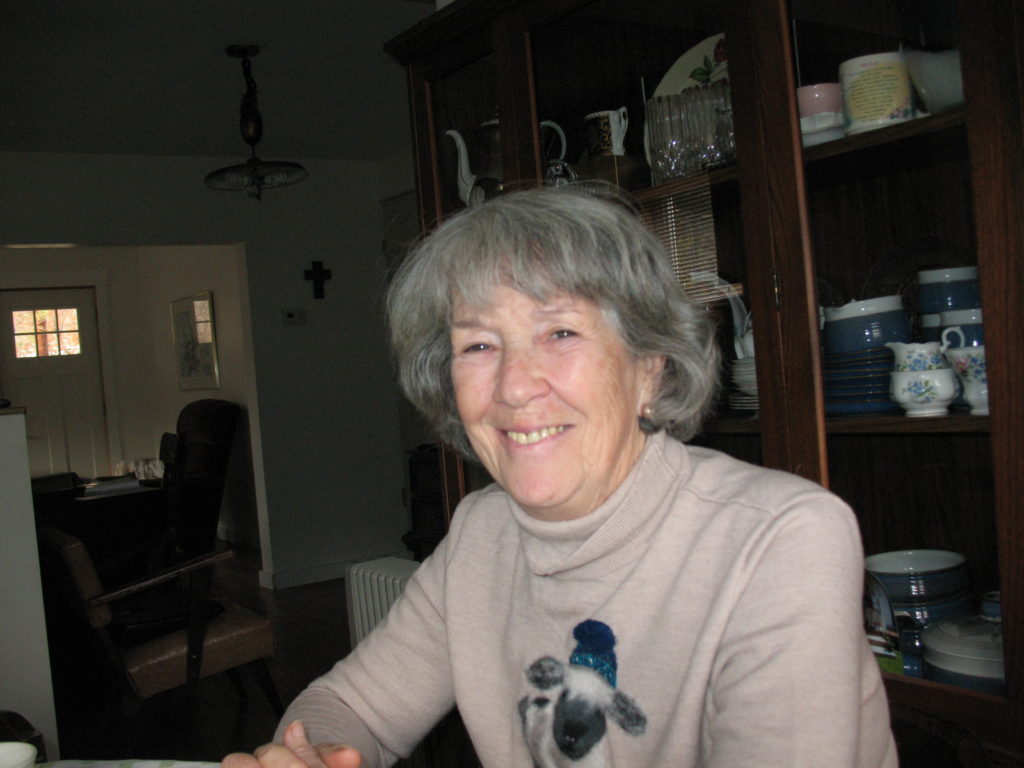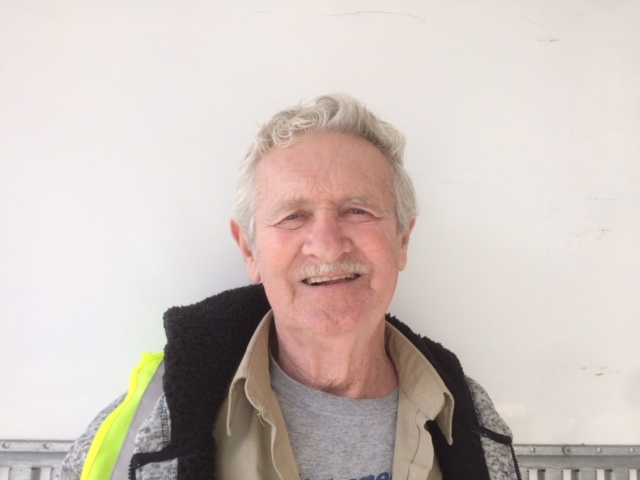
After observing human behaviour over my many years, I’ve concluded that some individuals just are not mentally or emotionally suited to live bland lives. Whether by luck, decision, or risk taking, they attract colour, action and zing into their existence. A phone conversation with Clarence (Buster) Flynn of Abbotsford last week convinced me he fits easily into this category. I was made aware of Buster by Angelique Wood after she loaded his 18 wheeler at the Fire Master location near Princeton.
Although Buster has been involved with heavy equipment most of his life, his first love was horses. “At about age 11 or 12 I began helping out at a local horse farm,” he recalled. “I fed and watered the horses, cleaned the stalls and did whatever was necessary.”
Considering furthering schooling unnecessary, Buster quit after grade nine. He got a job at the PNE and there he met Roy Rogers and Dale Evans, at that time popular celebrities. “I shook hands with them and stroked Trigger’s neck,” he remembered. “I didn’t have paper for an autograph, so Dale wrote on my wrist.” It’s still a valued memory.
At about age 15 he began working as a groom with thoroughbreds at the Landsdowne Race Track. “I was on duty at all hours, day and night,” he said. “Besides attending to their various needs, I walked the horses around the track on race days so people could watch them prancing and place bets on the ones they thought might win. They were high strung and unpredictable. I learned to be nimble, but I got bit and kicked lots. One of the horses, Chick Bird, took a liking to me and followed me around wherever I went. Developing a relationship with the horses took time. I learned about patience.”
One day Buster was given permission to ride a thoroughbred if he could persuade it to cross a bridge the horses didn’t like. The horse reared and bucked, but he persevered and the crossing was successful. Then, while riding by himself near the Deas Island Tunnel, the traffic was halted and a large open limousine emerged. This was the official opening of the tunnel and he had heard that Queen Elizabeth would be in the procession. “I wanted to meet her and say ‘hi’, so I urged the horse forward and came alongside the limousine.”
Being a horse enthusiast herself, the Queen immediately engaged him in conversation, asking questions about the impressive mount he was riding. A police officer hurried over and said, “son, get your horse off the highway!” The queen was enjoying the conversation though and said, “leave him alone. I’m talking with him.” Later Buster’s Mom said to him, “I heard about you on the radio. You’re famous!”
Although he loved the horses and the work, by age 18 Buster realized there was little money or future for him here. His father, a locomotive engineer hauling logs, wanted him to also become an engineer. “I enjoyed riding with him on the train,” Buster said, “but I wanted a machine with a steering wheel.”
He enrolled in a heavy equipment course and learned to operate scrapers, bulldozers, front end loaders, and more. After graduating, he visited a construction site and observed an operator on a mobile crane. “I watched him pull the levers, then went to the office and applied for a job. The manager asked if I could operate that crane. The course had not provided instruction on mobile cranes but I had confidence I’d figure it out. I told him I could. Although I was wearing street clothes, he asked if I was ready to start immediately.”
Buster’s first assignment was to drive the mobile crane to Richmond and load a 32 foot yacht onto a flat deck truck. “I figured out how to operate the crane, and got the job done without a scratch on the boat,” he said.
After many years of operating heavy equipment, Buster switched to driving highway rigs. In 2009 he survived a head on crash with another semi in the Fraser Canyon. The crash and two months recuperating didn’t dampen his ardour for driving. Now age 77, he is hauling lumber, beer, produce, firewood and whatever is required. He still says, “I just love getting up in the morning and going to work.” He’s one of those special ones who like a dose of zing in their lives.
